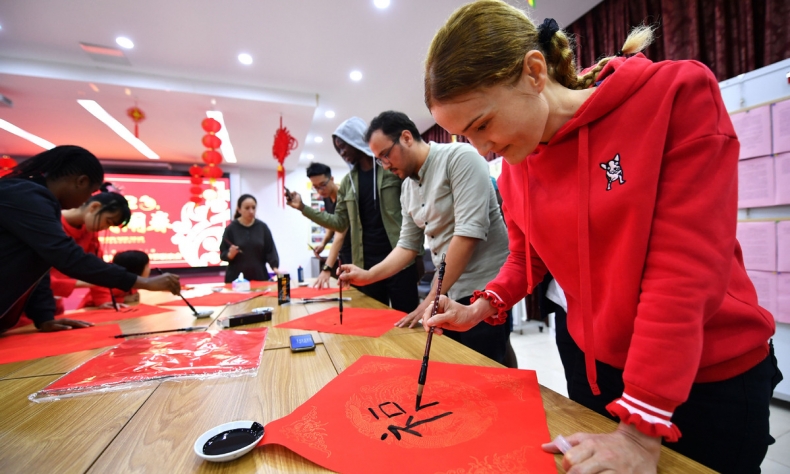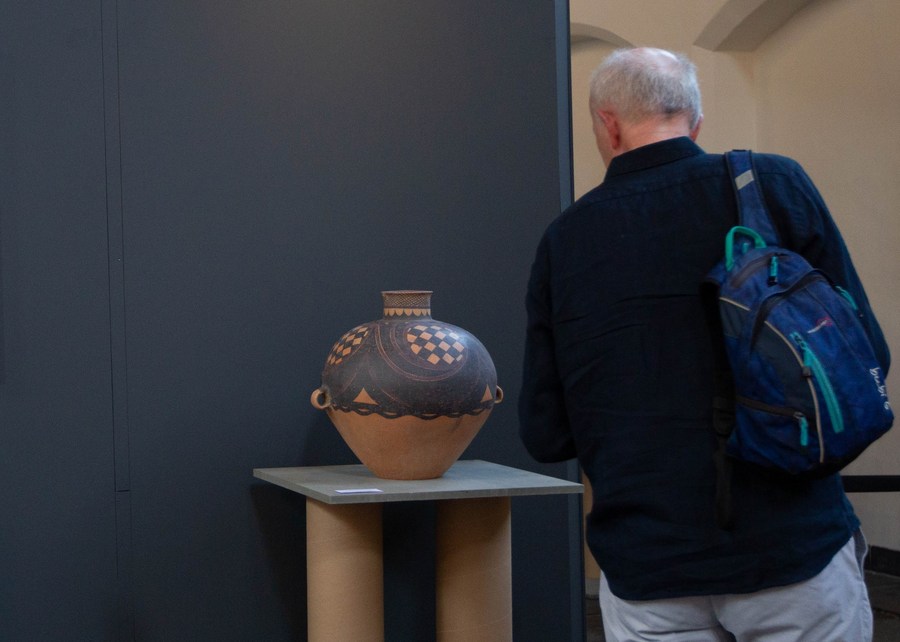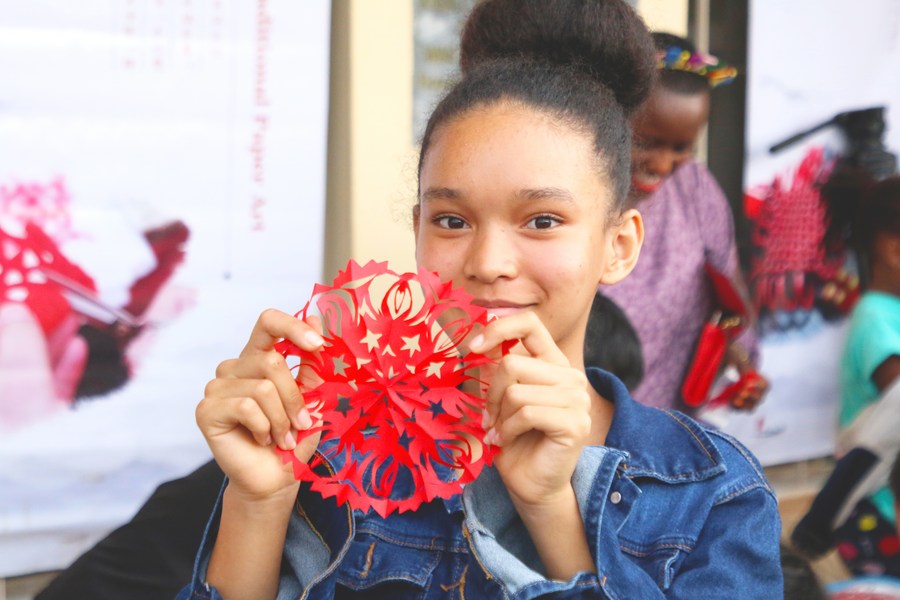Thriving Culture Sheds Light on a Global Community of Shared Future

In a world fraught with uncertainties and regional conflicts, the common challenges that threaten us all call for cooperation instead of confrontation. In this sense, the vision of building a community with a shared future for mankind is fast becoming an ideological beacon that charts the course of human progress.
Culture is the soul of a nation. Ensuing from the proposal of the Global Civilization Initiative (GCI) in March and the call to build a modern Chinese civilization in June, Chinese President Xi Jinping once more conveyed, at the national meeting on the work of public communication and culture held on October 8-9, important instructions on culture issues. The meeting also formally put forward Xi Jinping Thought on Culture.
These instructions wield considerable global influence by virtue of the value they place on exchanges and mutual learning among civilizations, on innovative transformation of fine traditional Chinese culture, and on the promotion of cultural undertakings and industries.
At a meeting on June 2 on cultural inheritance and development, President Xi expounded the prominent features of Chinese civilization, namely, its peaceful nature, continuity, originality, unity, and inclusivity, all of which galvanize its call on the country to build a modern Chinese civilization. Inclusivity has made possible the harmonious coexistence in China of diverse religious beliefs, and shaped its peoples’ openness to a globally diversified civilization. These features have enabled China’s ancient civilization to survive the nation’s historical vicissitudes, and to thrive in modern times. They moreover stand testament to China’s disinclination to impose its own values and political system on others in search of hegemony, and to China’s quest for cooperation rather than confrontation in its international relations.
The profound cultural heritage and China’s unique experience of modernization has laid the ground for the proposal of building a global community of shared future. President Xi propounded this vision 10 years ago, prompted by the question then on everyone’s lips: “Where is humanity headed?” Its cultural origins can be found in such ancient Chinese concepts as Datong (a world of great harmony), which resonates with the hopes of peoples across the world for a better world.

President Xi proposed the Global Civilization Initiative (GCI) at the CPC in Dialogue with World Political Parties High-level Meeting on March 15. The Initiative advocates the diversity of civilizations; the common values of humanity – peace, development, equity, justice, democracy and freedom; the importance of inheritance and innovation of civilizations; and robust international people-to-people exchanges and cooperation. In seeking to make a colorful and vibrant garden of world civilizations, the GCI, together with the Global Development Initiative (GDI) and Global Security Initiative (GSI), embody China’s latest moves toward the building of a community with a shared future for mankind, a concept that has been written into United Nations security resolutions and other documents.
Also aiming to promote closer people-to-people bonds, along with the pursuit of infrastructure connectivity, policy coordination, unimpeded trade, and financial integration, the Belt and Road Initiative (BRI) has, since its proposal in 2013, seen tangible results. The white paper, The Belt and Road Initiative: A Key Pillar of the Global Community of Shared Future, shows that by the end of June 2023, China had signed cultural and tourism cooperation documents with 144 BRI partner countries. In the process of steadily expanding international cultural exchanges, China launched the Cultural Silk Road program and organized signature events, such as the Happy Chinese New Year celebrations, the Nihao China tourism promotions, and the Silk Road: Artists’ Rendezvous art exhibition. China and BRI partner countries have hosted events, ranging from cultural relics exhibitions, film festivals, arts festivals, book fairs and music festivals, in a reciprocal manner. China has indeed established 46 China cultural centers in 44 countries, 32 of which are partner countries. Meanwhile, cities from 60-plus other BRI partner countries have formed more than 1,000 pairs of friendly cities with their Chinese counterparts.
In his keynote speech delivered at the opening ceremony of the third Belt and Road Forum for International Cooperation, President Xi Jinping included in the eight major steps China will take to support the joint pursuit of high-quality Belt and Road cooperation that of supporting people-to-people exchanges. China will accordingly host the Liangzhu Forum to enhance dialogue on civilizations with BRI partner countries. China has also launched the International Tourism Alliance of Silk Road Cities, in addition to the Silk Road International League of Theaters, the Silk Road International Arts Festival, the International Alliance of Museums of the Silk Road, the Silk Road International Alliance of Art Museums, and the Silk Road International Library Alliance.

In a world fraught with uncertainties and regional conflicts, the common challenges that threaten us all call for cooperation instead of confrontation. The Cold War mentality, zero-sum game tactics, and self-presumed superiority of a certain civilization should give way to the common values of humanity, win-win cooperation, and dialogues among civilizations. In this sense, the vision of building a community with a shared future for mankind is fast becoming an ideological beacon that charts the course of human progress.
China has been promoting cultural exchanges on the basis of equality and mutual benefits, and shown due respect for other cultures, Egyptian Culture Minister Nevien El Kilany said at the 2023 Beijing Culture Forum in September.
Tamara Rastovac Siamashvili, chairperson of the Executive Board of UNESCO, also endorsed China’s proposal for more dialogues among civilizations, indicating that she “was impressed by the unprecedented investment and high-level commitment [of China] that is being deployed in the field of culture, among many other domains.”
President Xi believes that cultural confidence and a thriving culture may pave the way toward the great rejuvenation of the Chinese nation, thus helping fulfill the vision of a global community of shared future. The integration of Marxism’s fundamental tenets with fine traditional Chinese culture is precipitating the renaissance and modern development of an ancient civilization. All are part and parcel of Xi Jinping Thought on Culture.
 Facebook
Facebook
 Twitter
Twitter
 Linkedin
Linkedin
 Google +
Google +










